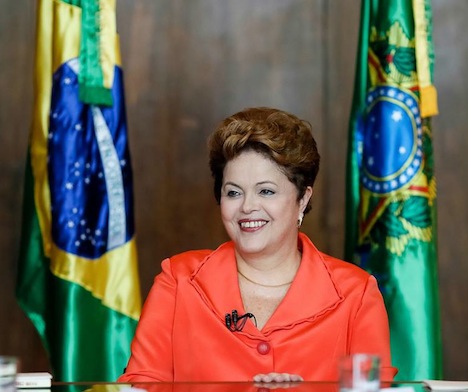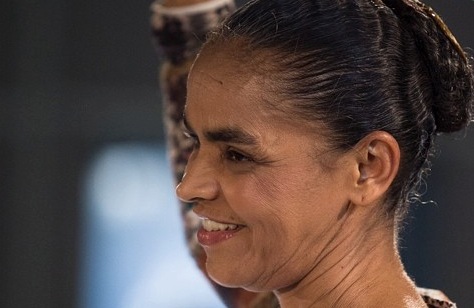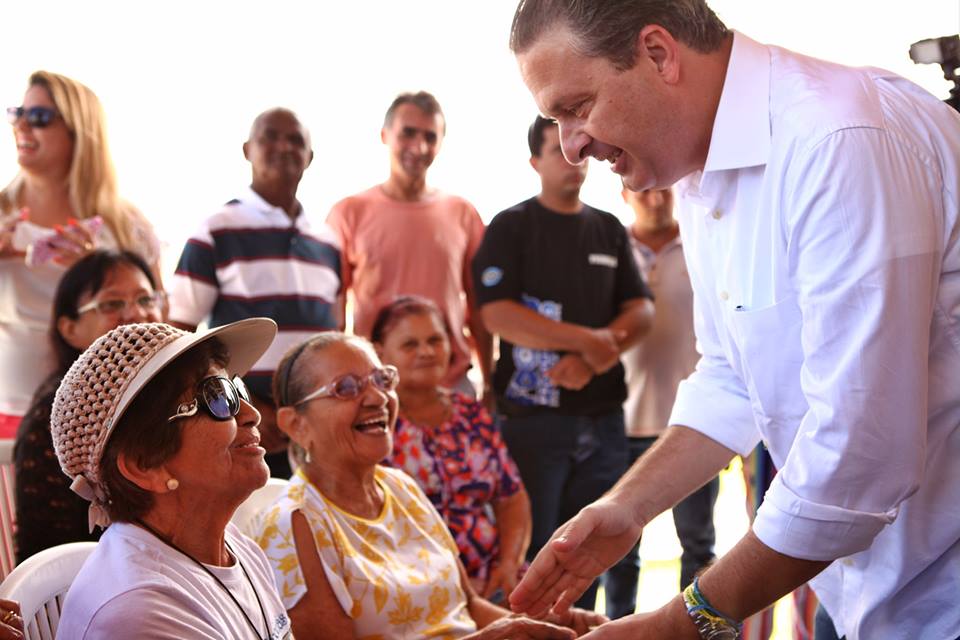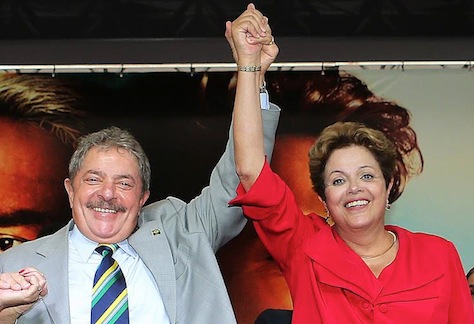
13. Brazil general election, October 5 (presidential runoff on October 26).
Though Brazilian president Dilma Rousseff holds a wide polling edge that favors reelection, her broad support is not necessarily deep, as demonstrated by the massive anti-government protests in 2013 that resulted from increased public transportation fees and eventually targeted Brazil’s stagnant economy, poor job opportunities and political corruption. An economy that was not long ago soaring grew by just 0.9% in 2012 and is expected to grow by a hardly stellar 2.5% in 2013. What’s more, Rousseff (pictured above) still has to get through most of 2014 — and there’s plenty of time for the opposition to upend her lead. She’s running for what would be the fourth consecutive presidential term for the social democratic Partido dos Trabalhadores (PT, Workers Party), itself testament to the enduring popularity of former president Luiz Inácio Lula da Silva.
Her prospects became more difficult in October 2013, when former presidential candidate Marina Silva decided to join forces with the candidate of the Partido Socialista Brasileiro (PSB, Brazilian Socialist Party), Eduardo Campos, the two-term governor of Pernambuco state in northeastern Brazil. Though it unofficially supported Lula da Silva’s reelection in 2006 and formally supported Rousseff in 2010, the PSB left Rousseff’s government in September 2013.
Though Campos is (for now) the presidential candidate, his running mate is by far a much more popular figure nationally. One of Brazil’s most prominent politicians of African descent, Silva served as Lula da Silva’s environment minister between 2003 and 2008, where she earned a reputation as a staunch defender of Brazil’s fragile rain forests and often found herself at odds with the more business-friendly instincts of others within her own government. Running as the candidate of Brazil’s Partido Verde (PV, Green Party), she won 19% of the vote in the first round of the October 2010 presidential election, and she was trying to found a new ‘sustainability party’ in 2013 before obstacles made that path impossible. Campos, who likewise served in Lula da Silva’s administration as minister for science and technology between 2004 and 2008, became Pernambuco’s governor in 2007 and was reelection with 82% of the vote in 2010.
The combination makes for an amazingly balanced ticket. Campos’s geographic base is Brazil’s northeast, while Silva has more support in the south and southeast. Campos is popular among business interests and could credibly appeal to conservatives who chafe under the increasingly regulatory intervention of Rousseff’s administration, while Silva is popular among younger Brazilians who are disenchanted with politics as usual. They’re both opposition candidates who nonetheless have ties to Lula da Silva, bringing some continuity with Brazilian policy over the past decade. Together they could build a credible anti-Rousseff coalition from among voters to her left and to her right, especially in a runoff.
Brazil’s center-right Partido da Social Democracia Brasileira (PSDB, Brazilian Social Democracy Party) will likely be represented by Aécio Neves, who served as governor of Minas Gerais, the second-most populous state in Brazil and home to Belo Horizonte, from 2003 to 2010. As governor, Neves cut the state’s budget and promoted investment, transforming the state’s fiscal outlook in a way that attracted national and international regard. In 2010, he was elected to the Senado Federal (Federal Senate), the upper house of Brazil’s Congresso Nacional (National Congress), and in 2013, he became the leader of the PSDB, making him the favorite to become its 2014 presidential contender as well.
With so much time until the election, the presumed candidates aren’t fully settled — and parties don’t have to make decisions until 2014. Silva and Campos could change places on the ticket, for example. Conceivably, Rousseff could step aside for former president Lula da Silva, though he announced early in 2013 that he wasn’t running and that he was supporting Rousseff for reelection. If Neves falters on the campaign trail, José Serra, the former São Paulo mayor, São Paulo state governor, planning minister and health minister could replace him on the ticket. But at age 71, Serra is seen as yesterday’s man — he lost the 2002 presidential race to Lula da Silva by a wide margin and lost a second bid in the October 2010 race to Rousseff by a margin of around 56% to 44%. What’s more, he lost a comeback bid to return as mayor of São Paulo in October 2012 by a similarly wide margin.
Brazil will also elect one-third of its Senate (27 out of 81 seats) and all 513 members of the Câmara dos Deputados (Chamber of Deputies), the lower house of the National Congress. Despite over a dozen major parties with at least 10 deputies, the parties align into a ‘lulista’ bloc and a center-right bloc, which gives Rousseff a majority in both houses, including 50 senators and 325 deputies. Other parties who support Rousseff’s government, however, are still undecided as between Rousseff and Campos, including the second-largest party in the National Congress, the big tent Partido do Movimento Democrático Brasileiro (PMDB, Brazilian Democratic Movement Party), and the center-right Partido Progressista (PP, Progressive Party).
Next: US Midterms
![]()







